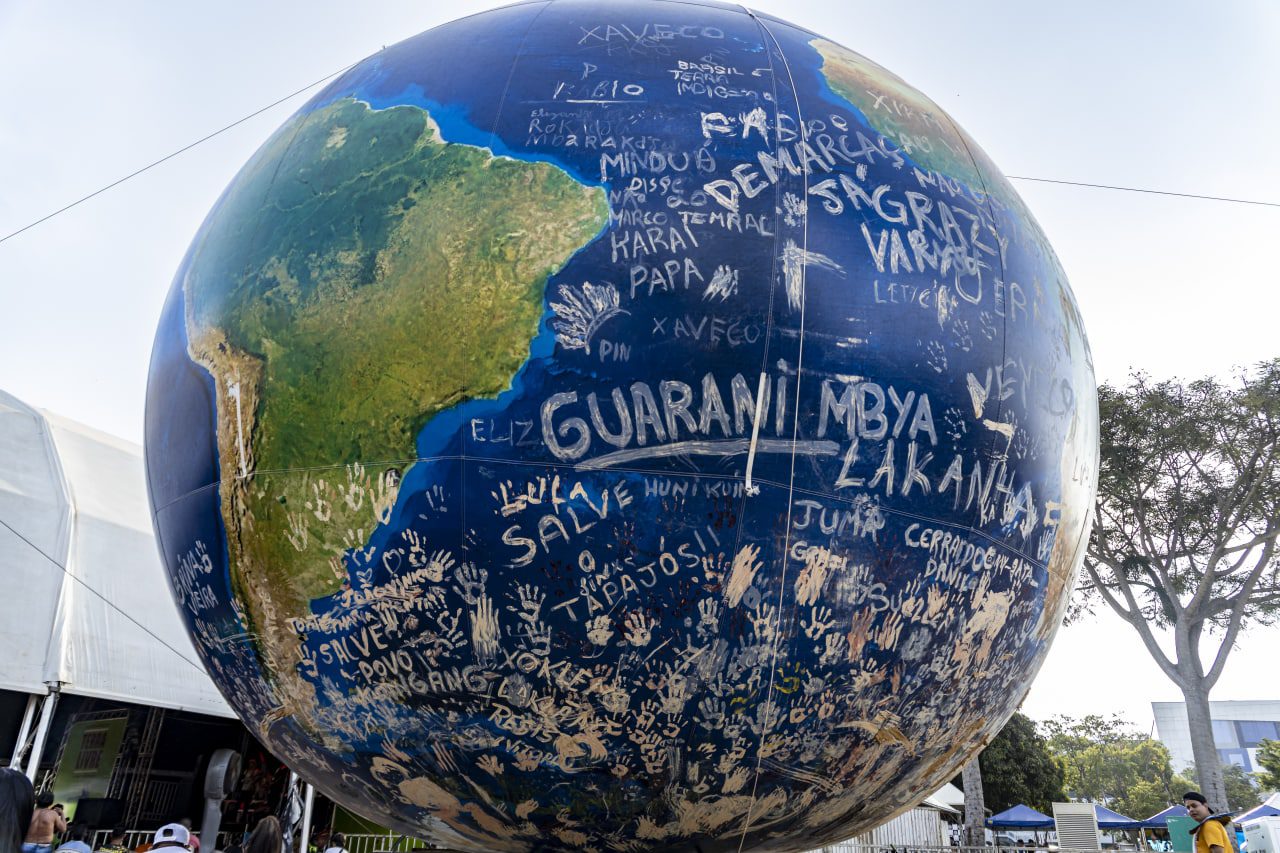
No climate policy without a politics of care
There is no ecological transition without care and affective justice. Exhaustion and trauma are also climate issues.
By Chris Zelglia for the NINJA Collaborative Coverage at COP30
The climate emergency is often framed through data: tons of carbon dioxide, 2050 goals, warming charts. Yet, this technical approach masks a crucial aspect: the ecological transition is more than a mere energy plan; it is a human project. And no human endeavor can exist without a focus on care.
Behind every environmental target lie exhausted individuals, vulnerable communities, peoples enduring long periods of colonial oppression, and those trying their best to hold onto hope for the continuity of life.
When governments and corporations treat care as secondary – as a procedural detail or an issue confined to social welfare – the climate transition becomes hostage to the same logic that brought us here: the belief that it is possible to maintain the mechanisms of exploitation and extractivism while expecting the planet to indefinitely withstand the effects.
There is no way to deal with climate collapse if people are burnt out.
The environmental struggle cannot be sustained on fragile foundations of subjectivity – that is, on lives lingering on the verge of emotional collapse, lacking time, security, or collective support.
The future cannot be built without healing the historical wounds that run through bodies and territories.
There is a great disconnect between triumphant narratives and the reality of those facing environmental hardship: activists under threat, Indigenous communities in a state of continuous mourning, and young people apprehensive about a future with few expectations.
Psychic life — the sum of emotions, affections, desires, and traumas that shape our daily experience — has become a battlefield within the climate crisis.
Ignoring this dimension is a subtle way of neglecting the crisis, as it disregards that collective suffering is also a political issue.
Care, in this context, is not just an emotional gesture: it is a political strategy, a form of infrastructure, and an element of justice.
An ecological transition devoid of a politics of care is nothing more than a new way of managing the disaster.
A shift in the energy matrix cannot occur without a transformation in our subjectivities — for example, in how we understand consumption and time.
It is necessary to redefine what we consider well-being and success, replacing the logic of incessant productivity with relationships that prioritize the regeneration of life.
The same system that exhausts forests also exhausts people. Extractivist logic invades bodies, turns time into a commodity, and suffering into silence.
By denying the right to rest, to mourn, and to pause, the system reinforces the idea that feeling is a sign of weakness, when, in fact, it is part of our humanity.
Climate policies that disregard mental health, territorial space, spirituality, and community ties perpetuate the very things they claim to combat.
Emotional capitalism hijacks the fight for the climate, turning engagement into spectacle, hope into a product, and exhaustion into a heroic narrative.
In the absence of public policies to protect activists, the fight for the climate becomes fuel for social burnout, while the market profits from discourses on well-being and resilience.
Climate justice demands attention to environmental and historical trauma. From Indigenous genocide to unequal exposure to pollution, the collapse is unequal.
Racialized groups living in riverine communities, peripheries, and rural zones have been paying with their bodies and memories for a future that the capital insists on calling sustainable.
Reparation is part of the transition, and it involves memory, care, and time.
It is essential that climate policy includes both psychic and material protection for environmental defenders, mental health as a public policy priority, and programs that guarantee income, housing, and time.
Without time, there is no space for care; for the recognition of Indigenous and Quilombola worldviews and wisdom, which are pathways to living more balanced with the Earth; for community networks, culture, rest, mourning rituals, and the reconstruction of life in common.
Care is not an idealization.
Care is a social technology oriented toward the future — a way of collectively reorganizing life so that it remains possible.
Without it, the ecological transition will be limited to the skillful management of destruction.
